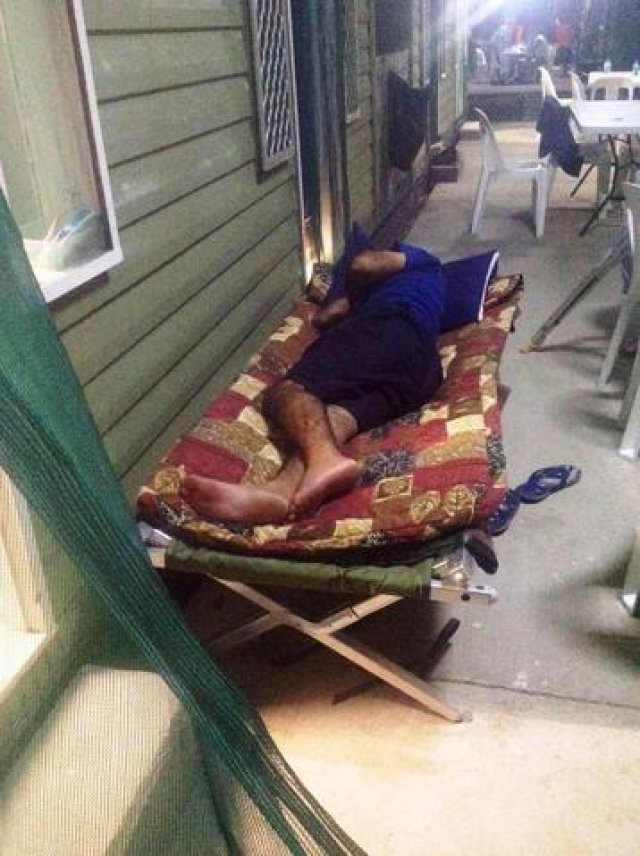
A possible malaria scare in the Manus Island refugee detention camp has sparked new calls to label the offshore detention regime a violation of human rights.
The Asylum Seeker Resource Centre said on January 27 that a 10-year-old girl had been in the camp's medical centre with malaria-like symptoms — high fever, shivering and bodily pain.
Although it was not confirmed to be malaria, the high prevalence and infection rate of malaria on Manus Island remains cause for serious concern. When the camp was operated under the John Howard government between 2001 and 2004, 15 people contracted malaria and continued to suffer ongoing effects of the disease long after settling in Australia.
In the lead up to reopening the detention centre in November last year, the government refused to answer repeated warnings from health authorities and human rights groups about the deadly disease.
The Global Health Clinic, a Geneva-based research organisation, said in a report last September that Manus Island was home to the “deadliest strain of malaria, Plasmodium falciparum, which is endemic to Papua New Guinea and resistant to artemesinin (anti-malarial) treatments”.
The World Health Organisation said in the World Malaria Report 2011 that 94% of Papua New Guinea’s population was at high risk of malaria infection and 80% of the infected population had the P. Falciparum strain. The highest number of suspected and reported cases in the country were on Manus Island.
Malaria can cause anemia, coma and physical disability. Untreated, it can also cause brain damage.
The conditions in the camp are indisputable breeding grounds for the disease. Photos taken by refugees in December showed many adults and children slept outside at night, because the refurbished shipping containers they were housed in had no air-conditioning.
Greens immigration spokesperson Senator Sarah Hanson-Young visited the camp last week. She told ABC radio's The World Today on January 31 the conditions were “squalid”. “The camp itself is pretty run-down. It's squalid in terms of the condition and it's really makeshift.
“They called the place a prison and that it was hellish. The children talked of having nothing to do. There is a small playground area that was built, has been built on top of an old tip. There is glass and rubbish coming up through the ground. There is a slide and that's about it.”
The Global Health Clinic's report said keeping refugees detained in such conditions despite the well-known high risk of contracting malaria “demonstrates an intention to subject asylum seekers to a near certain risk of such dangerous and irreversible ill-health. In our view, this constitutes ill-treatment sufficient to be categorised cruel, inhuman and degrading treatment or punishment.”
It made an urgent appeal to United Nations refugee agencies and the Special Rapporteur on Torture to challenge the Australian government's plans to run the centre.
Even as early as November 2011, doctors at Manus Island's only hospital told The Age that PNG had an “endemic malaria problem”.
But the immigration department has remained largely silent on the issue — ignoring warnings and continuing to take groups of refugees to the camp. More than 200 people, including families with children and “single adult males” are now living in the camp, made up of tents and refurbished shipping containers.
Under Howard, then immigration minister Philip Ruddock denied any cases of malaria in the camp. The immigration department argued instead that malaria was “common” among “unlawful arrivals”.
This show of gross neglect and denial of refugees' right to health is being repeated by the Labor government. The government has claimed it is giving refugees malaria tablets, insect repellent and, in the case of men held in the Nauru detention centre, long-sleeved tops to avoid being bitten. But none of these are long-term solutions, in the context of the government's plans to lock people up there for more than five years.
Dangerous diseases are not the only risks refugees face in the camp. A Twitter account run by the Asylum Seeker Resource Centre, @DetentionCount, is recording almost daily events of self-harm, suicide attempts, infection breakouts and people refusing food.
Self-harm has included one man putting his hand in an electric fan, ASRC said.
Several women have also announced pregnancies.
Groups of single adult men have been housed in a separate part of the camp, in over-crowded tents similar to those on Nauru, with few facilities.
The ASRC said a group of men who allegedly refused to give their names in protest at being sent to Manus, are being isolated and denied access to computers.
Refugees held on Nauru and Manus Island are seriously suffering as a result of being arbitrarily and punitively chosen for these hell holes. Malaria and other tropical diseases are just one aspect of the raft of physical and psychological traumas experienced by the uncertainty and despair cultivated by this regime.
This punishment is ostensibly devised by the government as a “deterrent”. But given its clear failure to “deter” any refugees — numbers spiked after the “Pacific solution” was rebooted — the more obvious rationale for why the Gillard government is mercilessly pursuing a policy now almost indistinguishable from the Liberal Party's is to continue to use asylum seekers as a scapegoat.
Now that an election date has been set, the race to the bottom will quicken. It has grown more urgent to dispel myths, expose the government's cruelty and demand full human rights for all refugees and asylum seekers.
Related article: Refugee groups plan national protest.